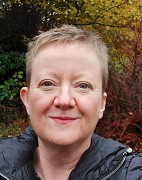Authors
HP Price1; S Agampodi5; TC Agampodi5; L Dikomitis2; PR Machado3; A Mulugeta4; L Trad3; 1 Keele University, UK; 2 University of Kent , UK; 3 Federal University of Bahia, Brazil; 4 Mekelle University, Ethiopia; 5 Rajarata University of Sri Lanka, Sri LankaDiscussion
Cutaneous leishmaniasis (CL) is a stigmatizing neglected tropical disease (NTD) which affects highly marginalized and underserved communities across the globe. While there are new WHO initiatives to address skin-related NTDs, effective control will require a clearer understanding of the barriers to accessing healthcare for CL and the wider challenges and effects of the disease on individuals and their communities. We present here findings from the five-year interdisciplinary ECLIPSE programme which aims to improve the CL patient journey and reduce stigma in the most underserved communities in Brazil, Ethiopia and Sri Lanka.
We have used qualitative, quantitative and creative approaches to investigate the impacts of CL on individuals and communities, levels of disease awareness and the barriers and facilitators for accessing diagnosis and treatment. Through dedicated Community Advisory Groups and Communities of Practice we ensured that our approach, research tools and interventions are appropriate for each context and that all activities are underpinned by stakeholder involvement.
Findings from over 200 interviews and 2,500 surveys across three countries showed that understanding of the causes and transmission of CL was low and that misinformation contributed to fear and stigmatization of affected individuals and, in some cases, of whole communities. Barriers to accessing healthcare included distance of travel to clinics, lack of childcare, fear of drug side-effects, inability to work, and low disease awareness in communities and healthcare professionals.
We found the burden of CL to be particularly high in Tigray, Ethiopia, where the ECLIPSE team evidenced the devastating impact of the recent conflict on healthcare systems, together with a sharp increase in CL cases due to population displacement to caves and greater contact with rock hyrax, a reservoir host for Leishmania aethiopica. Understanding and awareness of CL was very low in affected communities. There was a view at primary healthcare level that the disease was untreatable, which impacted on referral for diagnosis and treatment. Conversely, use of traditional remedies was very high. There was evidence of severe stigma of individuals, which was linked to local beliefs about CL.
The ECLIPSE team are now addressing identified challenges and barriers through the co-production and implementation of bespoke community-facing interventions, with shared learning across country teams. Interventions include awareness campaigns, community-based films and books, a traditional masked folk theatre, video animation, television and radio programmes, podcasts, and training courses for healthcare professionals. In parallel, we are engaging with policymakers across multiple sectors and influencing policy change around decentralisation and increasing capacity and access for CL diagnosis and treatment. Work with the Tigray Regional Health Bureau and Ayder Hospital has resulted in the establishment of a new inpatient centre and five new outpatient treatment centres for CL in Tigray. 

